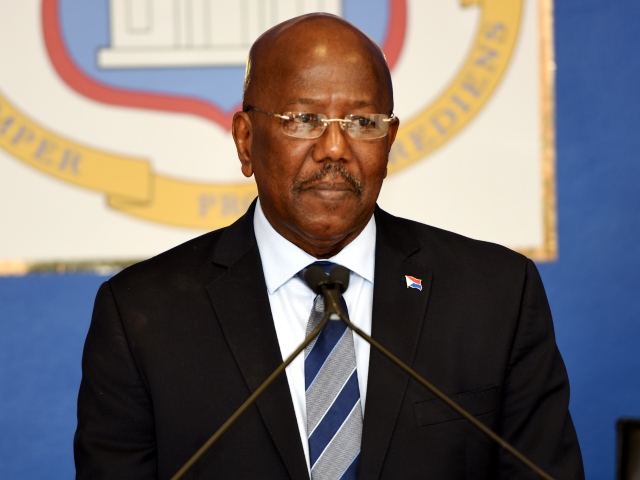St. Maarten, Monday, August 14, 2017.
Our governing program for 2016-2020 is entitled, “Stability for Prosperity”. It is anchored on five strategic objectives, all of which can only be achieved by upgrading our government apparatus. We are not even one year into this governing period yet and we can see that various initiatives that are geared towards a profound transformation of our society are already taking shape. One of those initiatives is why we are gathered here today. Nobody knows the challenges that this coalition government faces better than the civil servants who do their utmost day in, day out, to give professional support to government. Civil servants are the guarantors of continuity in government, and without such continuity we cannot really speak of stability.
It is therefore logical that in pursuing our vision of a strong, proud, healthy and resilient nation, we should equip our civil servants, particularly those who are tasked with giving the required advice on government policy, with the necessary tools to enable them continue discharging their duties as efficiently and as professionally as possible.
This is the reason this project was initiated. The Basic Law Course which started this morning will address the fundamentals of our governmental operations and provide participants with the necessary legal education and training that will ensure that they can continue to improve their performance in every aspect of their professional duties and offer the highest level of quality service to our citizens, partners and international counterparts.
I am, therefore, very happy to note that over 100 persons have already registered for this Course. This is a clear indication of their commitment to professional and personal development that will surely result in an improved service-based sector. I know that many more would have liked to register for this Basic Legal Course, but unfortunately we cannot shut down government to allow every civil servant to participate in the course.
The large number of participants is the reason why the Course has been organized into three classes per module instead of one. The program will last a total of five weeks of intensive training which will end in November with graduation set for December.
By then, as you all know, the Law School, the brainchild of Minister of Finance, Mr. Richard Gibson, would have gotten off the ground. Minister Gibson founded and led one of the most successful law firms on the island and also served as minister of constitutional affairs in the now defunct Netherlands Antilles. He is very passionate about helping St. Maarteners enter into the legal field and hopefully the credits obtained in this Basic Legal Course can be acceptable in the new Law School for those of you who may be interested in taking this to a higher level.
As a young and growing nation that will be just seven years old in a couple of months, it is imperative for our future development to have our own cadre of lawyers and legal professionals and a civil service corps that has a functional knowledge of how our system of government works. In fact, one of the core responsibilities of the Ministry of General Affairs which I head is the preparation, publication and management of the laws and regulations of the country, as well as giving legal advice.
It is a well-known fact that the vast majority of our laws are initiated and drafted by the executive branch of government for passage by Parliament. This requires that those who prepare these laws and those who give advice on them are well-versed in the legal processes and procedures and have the necessary skills to do their jobs in a way that would reflect the strengths of our young country.
Another important responsibility of the Ministry of General Affairs is ensuring an effective, efficient, trustworthy and client-friendly service to the governmental organization, business sector, citizens and other private sector organizations that make up the community of Sint Maarten, in addition to taking care of external communication pertaining to government policy in general.
Initiatives like this Basic Legal Course are therefore necessary to maintain the required level of professionalism and transparency in the public sector that are indispensable for good governance.
“Knowledge is power. Information is liberating. Education is the premise of progress, in every society, in every family,” said Kofi Annan, former U.N. Secretary General. I consider our civil servants as members of a tightly-knit family that knows the value of knowledge and values the use of the power that comes with it in a judicious, fair, and equitable manner. I am convinced that government is doing the right thing with this kind of initiative because no other investment yields better dividends than an investment in knowledge that is put to good use.
I hope and expect that participants in this Basic Legal Course will put the knowledge they acquire to the best use possible thereby contributing to the transformation of the Civil Service corps into the vector of change that will benefit the people of our beloved island.
I am proud of the excellent work done in organizing this course by the Project Team led by the Secretary General of the Ministry of General Affairs, Mr. Hensley Plantijn, ably assisted by Jennifer Fer, Head of the Legal Affairs and Legislation Department, drs. Bas van den Bosch, sector head of Legal Affairs, and Tytania Archangel also of the Legal Affairs Department.
Congratulations to all participants for taking this very important step and success with the course.
I thank you.






























